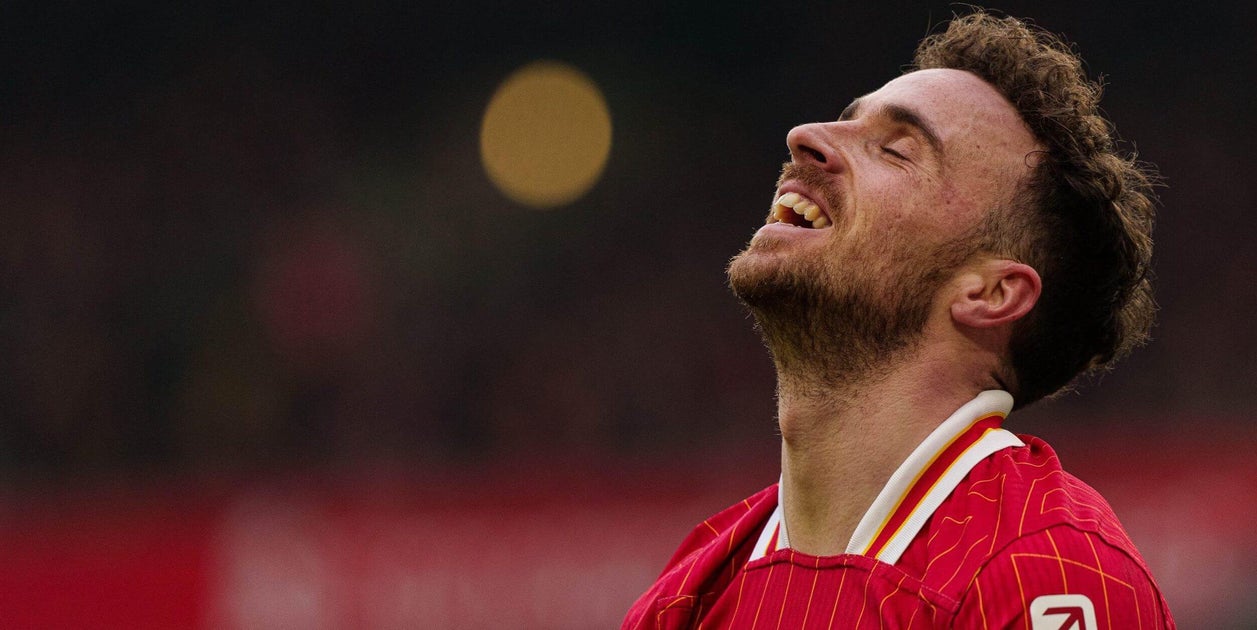This should have been the summer of Diogo Jota’s life.
The Portuguese footballer had just won his first English Premier League title with Liverpool, the club he had served with distinction since 2020. Less than a month later, he was lifting another trophy — the UEFA Nations League — with his home country.
He had married Rute Cardoso, his partner of 13 years and the mother of his three children, on June 22 and was looking forward to returning to Liverpool next week for the start of pre-season training.
But then came the cruellest twist. Jota and his brother, Andre Silva, were driving in a remote area of north-west Spain, near the Portuguese border, in the small hours of Thursday morning when their car crashed. Both men were killed.
The news has left football in a state of shock. Jota was only 28, in the prime of a career that had already yielded five major honours for club and country. He would have been a pivotal player for a highly rated Portugal team at next year’s World Cup in the United States, Canada and Mexico. Instead, his story has been cut tragically short.
As his international team-mate Cristiano Ronaldo put it in his own statement, “It doesn’t make sense.”
Jota was a gifted, versatile attacker with a range of attributes. He was intelligent, a silky dribbler who was difficult to stop, and a poacher in the penalty area. He was nicknamed ‘Jota the Slotter’ by Liverpool fans because of his cool and calm habit of picking the exact spot he wanted the ball to nestle in the net.
Yet football was only part of his story. Jota was beloved not just because of his prowess as a striker, but because of his warmth and friendliness as a human being. Darwin Nunez, his fellow Liverpool forward, said he would always remember his “smile, as a good companion on and off the field”, and he wasn’t alone.
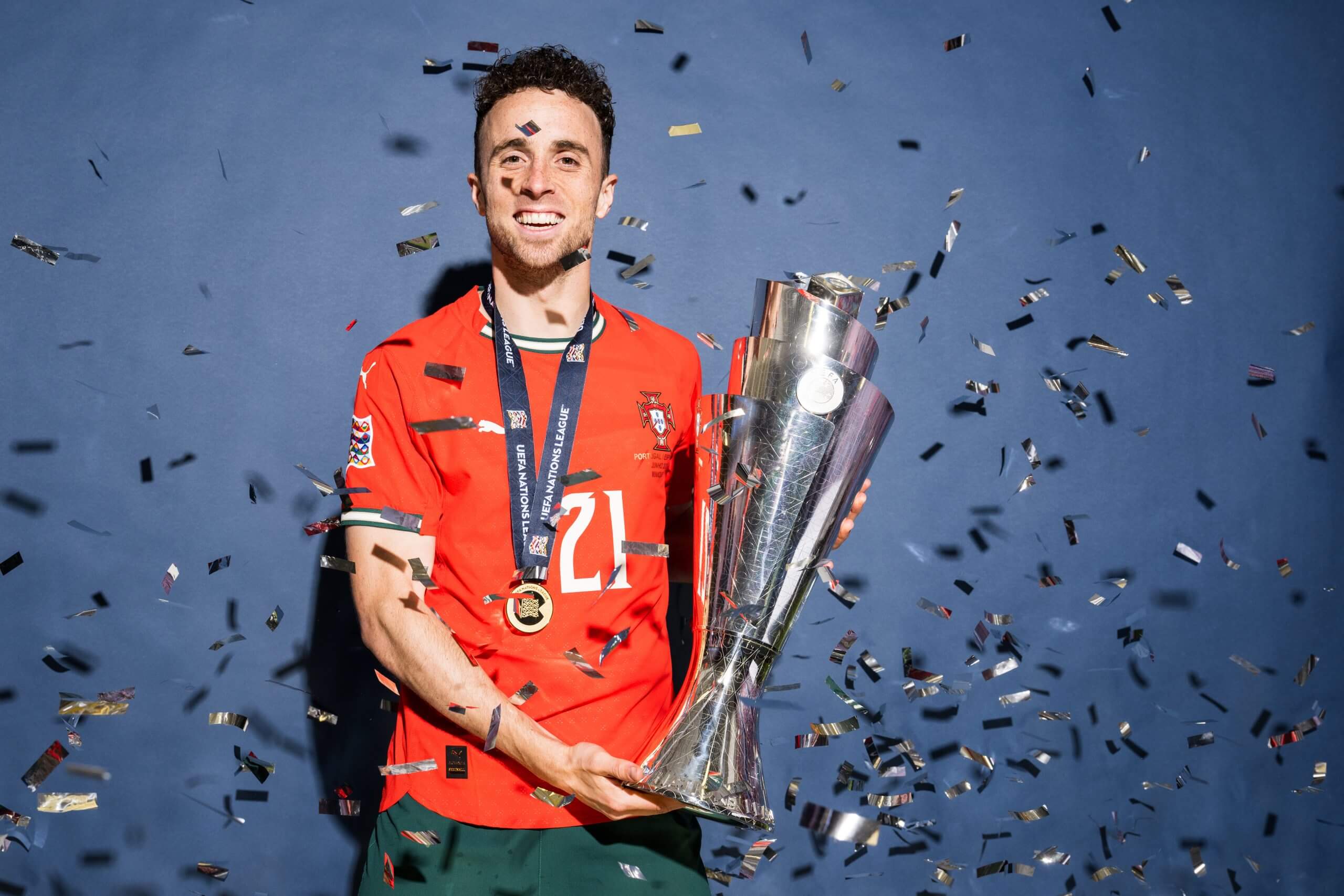
Diogo Jota won the Nations League with Portugal in June (Sebastian Widmann – UEFA/UEFA via Getty Images)
Jota’s career began as a youngster at Gondomar, a small club in the Portuguese city of Porto, before he joined the youth setup at Pacos de Ferreira — a bigger outfit, but located nearby — in 2013. It was there where he broke into senior football, making his senior debut in October 2014 as a substitute in the Taca de Portugal, Portugal’s primary cup competition.
His first full season in the senior side caught the attention of Spanish side Atletico Madrid, who confirmed his signing in the summer of 2016. He would never actually appear for them as he was loaned to Portuguese side Porto in 2016-17 and then England’s Wolverhampton Wanderers in 2017-18.
In the Championship, Jota played a key role in Wolves’ promotion to the Premier League, scoring 17 goals in 44 league matches as they won the title. Halfway through the campaign, Wolves secured his signature permanently from Atletico for around €14million (£12m/$16m by today’s exchange rate).
He adjusted to the top flight quickly and his reputation began to soar. Across the next two seasons, Jota scored 16 league goals and provided six assists as Wolves secured back-to-back seventh-placed finishes, securing Europa League football for the 2019-20 season. He excelled on the European stage, too, scoring nine goals during his side’s run from the competition’s qualifiers to the quarter-finals.
His impact was noticed by then reigning Premier League champions Liverpool and their manager, Jurgen Klopp, and they signed him in 2020 for £41m, bolstering their forward line, which already included the talented trio of Mohamed Salah, Roberto Firmino and Sadio Mane.
Klopp, who stepped down at Liverpool in 2024, wrote on his Instagram account today: “I’m heartbroken to hear about the passing of Diogo and his brother André. Diogo was not only a fantastic player, but also a great friend, a loving and caring husband and father! We will miss you so much!”
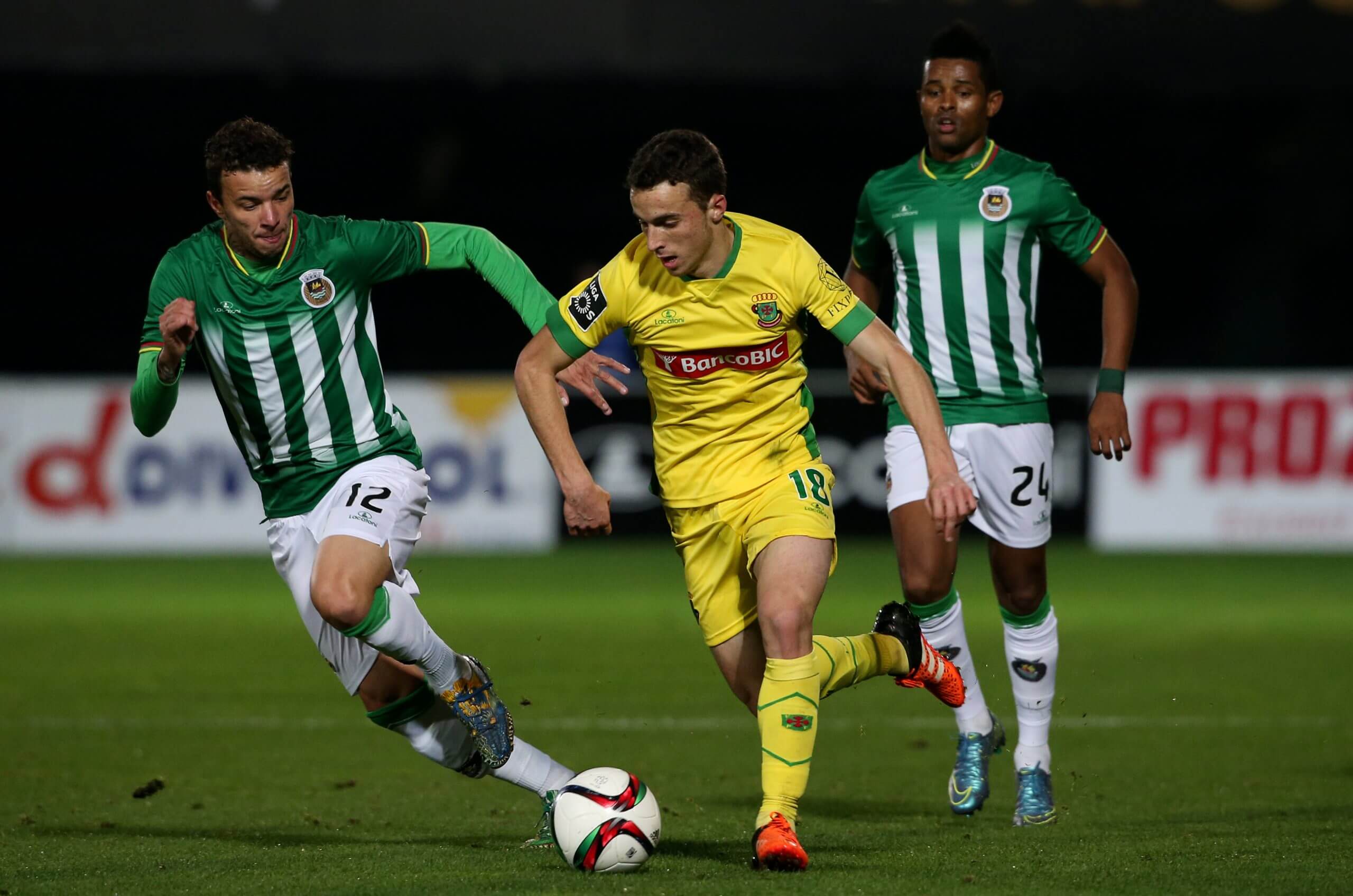
Jota in action for Pacos de Ferreira in 2015 (Gualter Fatia/Getty Images)
Jota was at home at the elite level and flourished with increased quality around him. Christened a “pressing monster” by assistant manager Pepijn Lijnders — a reference to his relentless energy and habit of harrying opposition defenders — Jota’s first goal came in a 3-1 victory over Arsenal. He went on to torment the north London club over the course of his Anfield career, but they were far from alone in suffering at his hands.
He had a habit of delivering at big moments. He scored twice — at Arsenal, again— in the Carabao Cup semi-final second leg in 2022, having already helped Liverpool reach that stage by scoring the winning penalty in a shootout victory over Leicester. More recently, he scored Liverpool’s first goal under their new head coach, Arne Slot, who succeeded Klopp last summer.
Last season, just as Liverpool looked in danger of wobbling as they tried to close in on the league title, it was Jota who stepped up to equalise in a crucial match at Nottingham Forest in January.
His final goal for the club was the winner in the 1-0 victory over local rivals Everton in the Merseyside derby that pushed Liverpool closer to the title. It was a strike that epitomised his qualities: a slaloming dribble, turning defenders inside out, before a calm finish, outfoxing goalkeeper Jordan Pickford by hitting a shot inside the near post.
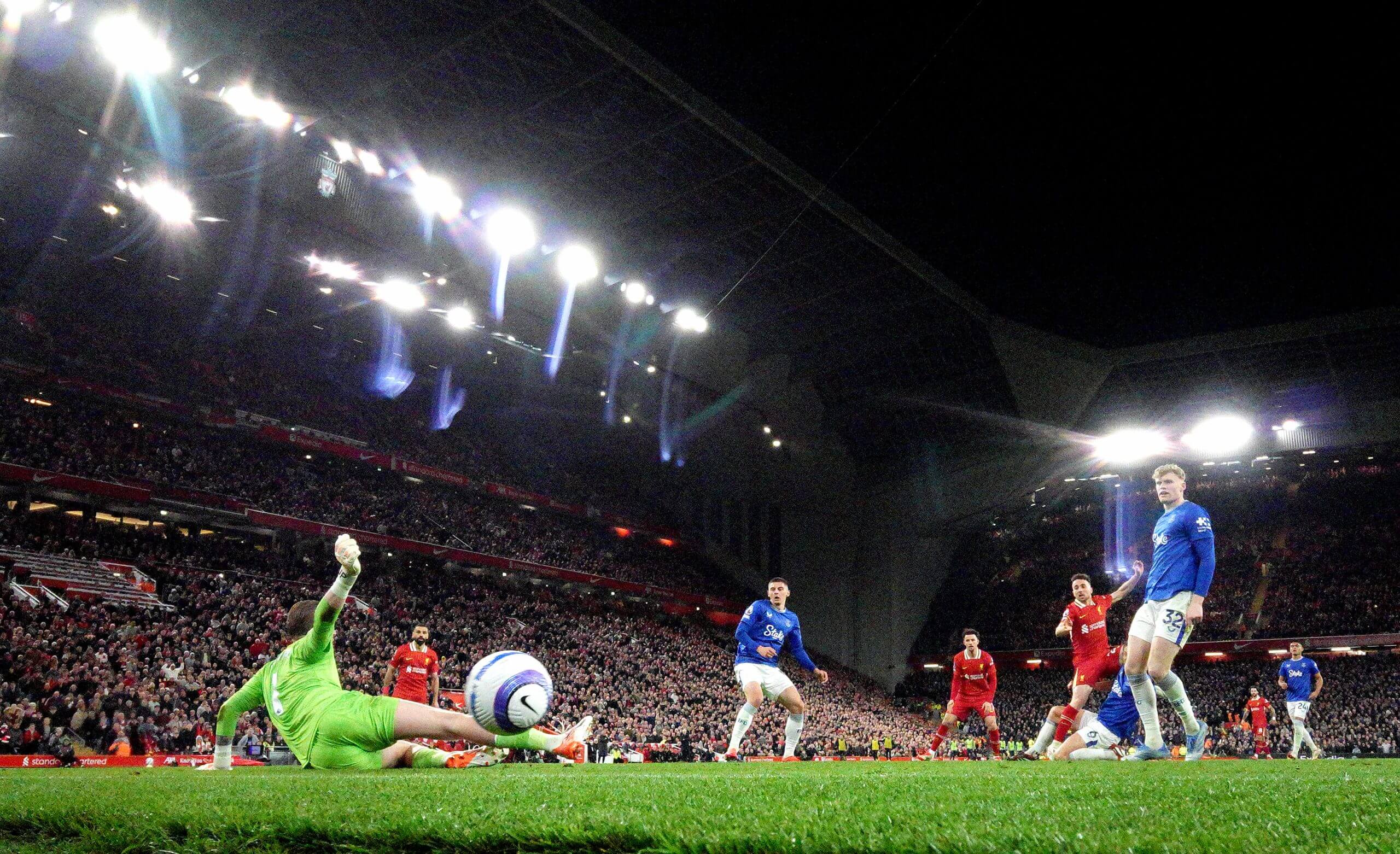
Jota scores his last Liverpool goal, against Everton in April (Carl Recine/Getty Images)
In his five seasons at Liverpool, Jota won everything there was to win domestically, collecting medals in the FA Cup and Carabao Cup, as well as that Premier League title. He scored 65 goals in 182 appearances in the process, tallies that would have been far higher had he not been dogged by injuries during his time at Anfield.
Yet when he was on the pitch, he always offered a goalscoring threat, and Liverpool were often a better team when he was in it.
To say he was and will remain adored by the Anfield faithful would be an understatement. Some players struggle to forge a bond with supporters, viewing football as a job and clubs as stepping stones on a wider career path.
Not Jota. He channelled the energy of Liverpool’s famously febrile home crowd, just as he had at Wolves. He understood Liverpool as a city — a noisy, tough and raw place where football matters more than almost anything else. But he also played the game with enjoyment, a relentless work ethic and a drive and hunger to be the best player he could be.
The song fans wrote for him — “Oh his name is Diogo”, to the tune of Creedence Clearwater Revival’s Bad Moon Rising — became an instant hit and reverberated around Anfield, away grounds and whichever European city Liverpool were visiting.
Behind the scenes, he was universally liked and admired. He was a supreme professional who never caused an issue for his manager. He was popular throughout the squad, but was closest to Liverpool’s South American contingent — Uruguay’s Nunez, Colombia’s Luis Diaz, who he sat next to in the dressing room at Anfield, and Argentina’s Alexis Mac Allister.
Jota’s passion for football knew no bounds. He was an excellent player of the EA Sports game FIFA, ranking No 1 globally in the FIFA 21 Champions Leaderboard on PlayStation in 2021, with an unbeaten 30‑0 record. He also won the FIFA 20 ePremier League Invitational in 2020, held during the Covid-19 pandemic, representing Wolves and defeating future team-mate Trent Alexander‑Arnold in the final.
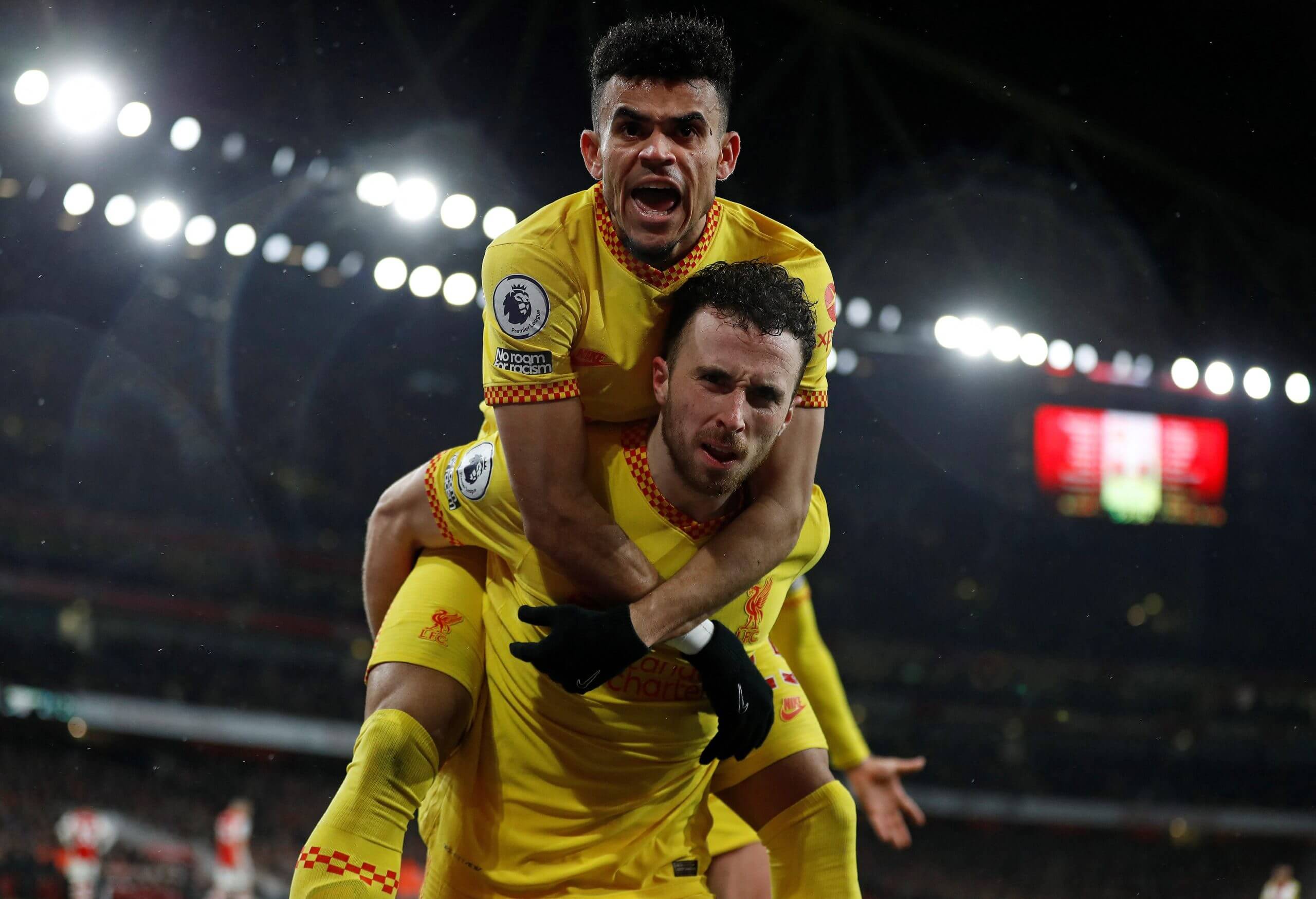
Jota with his good friend Luis Diaz (Ian Kington/IKIMAGES/AFP via Getty Images)
He became one of the top registered FIFA 23 players in Europe, which meant he qualified to play in the eChampions League on his PlayStation 5. His ‘video game’ goal celebration — where he would sit on the grass after scoring and mimic using a console controller — connected his two passions.
He formed his own e-Sports team, originally named after him in 2021, before being rebranded to become Luna Galaxy in 2023 — the name Luna deriving from one of his three Beagle dogs.
Sport was Jota’s life, but he was a modern sportsman, one who appreciated that weaknesses were not something to be frightened of. In October 2024, he gave an interview to the Liverpool website where he spoke openly about the importance of mental health and his use of performance psychologists.
“Speaking to someone and saying the problems out loud helps,” he said. “It happens to me, I have a fear, but when I say it out loud, it already gives you a different feeling. I think that’s one of the good reasons why you should speak to someone.”
Such openness and eloquence are not necessarily typical of a Premier League footballer. But, then again, Diogo Jota was not typical in any sense.
(Top photo: MI News/NurPhoto via Getty Images)
